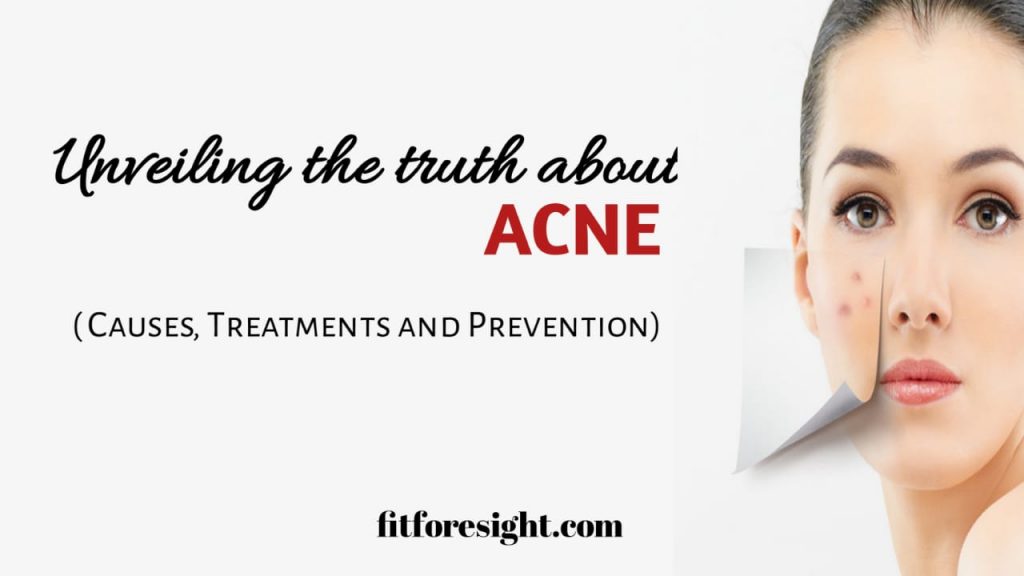Causes, Treatments, and Prevention
Acne is a common skin condition that affects people of all ages, causing physical and emotional discomfort. While it’s often associated with teenagers, acne can persist into adulthood and has a range of causes and potential treatments. In this article, we will explore the ins and outs of acne, from its root causes to effective treatments and preventive measures to help you achieve clear, blemish-free skin.
Understanding Acne: What Is It?
Acne is a skin condition that occurs when hair follicles become clogged with oil and dead skin cells. It typically manifests as pimples, blackheads, whiteheads, and sometimes even more severe forms like cysts. Acne most commonly appears on the face, but it can also affect the neck, chest, back, and shoulders.
Common Causes of Acne
- Excess Sebum Production: One of the leading causes of acne is an overproduction of sebum (skin oil). This excess oil can clog hair follicles and lead to breakouts.
- Clogged Pores: When dead skin cells and excess oil accumulate in hair follicles, they create a perfect environment for acne to develop.
- Bacteria: The presence of Propionibacterium acnes (P. acnes) on the skin can exacerbate acne by causing inflammation and infection in clogged hair follicles.
- Hormonal Fluctuations: Hormonal changes during puberty, menstruation, pregnancy, and menopause can trigger or worsen acne.
- Diet: There is some evidence that certain high-glycemic foods and dairy products may exacerbate acne in some individuals.
Effective Treatments for Acne
- Topical Treatments: Over-the-counter products containing ingredients like salicylic acid or benzoyl peroxide can help clear mild acne. Prescription topical treatments may be necessary for moderate to severe cases.
- Oral Medications: In more severe cases, dermatologists may prescribe oral antibiotics, hormonal therapy (e.g., birth control pills), or isotretinoin, a powerful medication reserved for severe, persistent acne.
- Professional Procedures: Dermatological procedures like chemical peels, microdermabrasion, and laser therapy can be effective in reducing acne scars and preventing further breakouts.
- Lifestyle Changes: Maintaining a healthy lifestyle with a balanced diet, regular exercise, and proper skincare can significantly improve your skin’s overall health.
- Stress Management: Chronic stress can trigger acne or exacerbate existing breakouts. Practicing stress-reduction techniques like meditation and yoga can help manage this aspect.
Preventing Acne
Preventing acne is often more manageable than treating it. Here are some practical tips:
- Cleansing: Gently cleanse your face twice daily with a mild, non-comedogenic cleanser to remove excess oil and impurities.
- Avoid Picking or Squeezing: Picking at pimples can worsen acne and lead to scarring. Hands off!
- Hats and Haircare: Keep hats and hair off your face, as oils and sweat from hair can contribute to breakouts.
- Sun Protection: Use sunscreen to protect your skin from the sun, but choose non-comedogenic products.
- Remove Makeup: Always remove makeup before bedtime to prevent pore-clogging.
- Balanced Diet: Incorporate a balanced diet rich in fruits, vegetables, and whole grains while reducing high-glycemic foods.
Debunking Acne Myths
There are numerous myths surrounding acne. Let’s clarify a few:
- Acne is caused by poor hygiene: While proper skincare is essential, acne is not solely due to uncleanliness.
- Only teenagers get acne: Acne can affect people of all ages.
- Tanning clears acne: Sun exposure may temporarily improve the appearance of acne, but it can worsen the condition in the long run.
In conclusion, acne is a common and treatable skin condition with a variety of causes and treatment options. By understanding the root causes, pursuing effective treatments, and adopting preventive measures, you can embark on the journey to clearer, healthier skin. Don’t let acne define your confidence – take control of your skin’

